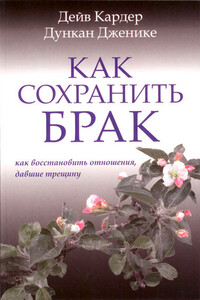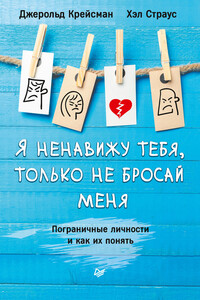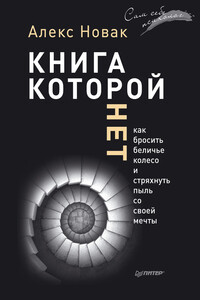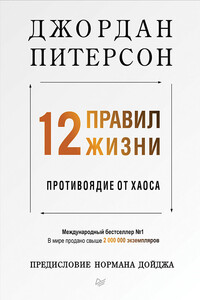Власть эмоций. Как управлять своими чувствами [заметки]
1
Antonio D’Amasio, “How Our Brains Feel Emotion,” Big Think, June 14, 2011, www.youtube.com/watch?v=KsSv1KzdiWU.
2
“The Ekmans’ Atlas of Emotions,” http://atlasofemotions.org.
3
Yasmin Anwar, “How Many Different Human Emotions Are There?” Greater Good Magazine, September 8, 2017, https://greatergood.berkeley.edu/article/item/how_many_different_human_emotions_are_there.
4
Brené Brown, “List of Core Emotions,” https://brenebrown.com/downloads.
5
“The Ekmans’ Atlas of Emotions,” http://atlasofemotions.org/#triggers.
6
Paul Ekman, “Basic Emotions,” in Handbook of Cognition and Emotion, eds. Tim Dalgleish and Mick J. Power (New York: John Wiley & Sons Ltd., 1999).
7
“Positive Psychology 2.0: Towards a Balanced Interactive Model.” Dr. Paul Wong. May 1, 2011. http://www.drpaulwong.com/positivepsychology20towardsabalancedinteractivemodelofthegoodlife/.
8
Susan David, Emotional Agility: Get Unstuck, Embrace Change, and Thrive in Work and Life (New York: Avery, 2018).
9
Jordi Quoidbach, June Gruber, Moira Mikolajczak, Alexsandr Kogan, Ilios Kotsou, and Michael I. Norton, “Emodiversity and the Emotional Ecosystem,” Journal of Experimental Psychology: General 143, no. 6 (Decem ber 2014): 2057–66, www.hbs.edu/faculty/Pages/item.aspx?num=47718.
10
James Baraz, “Are Your Happiness Goals Too High?” Greater Good Magazine, January 17, 2017, https://greatergood.berkeley.edu/article/item/are_ your_happiness_goals_too_high/success.
11
“Dalai Lama Quote.” AZ Quotes. https://www.azquotes.com/quote/849367.
12
Martin E. P. Seligman, Flourish: A Visionary New Understanding of Happiness and Well-being (New York: Free Press, 2013).
13
Mihaly Csikszentmihalyi, Flow and the Foundations of Positive Psychology: The Collected Works of Mihaly Csikszentmihalyi (New York: Springer, 2014).
14
Rick Hanson and Forrest Hanson, Resilient: How to Grow an Unshakable Core of Calm, Strength, and Happiness (New York: Harmony Books, 2018).
15
Hanson, Rick. “The Importance of Learning.” Dr. Rick Hanson. March 26, 2018. https://www.rickhanson.net/theimportanceoflearning/.
16
Lyubomirsky, Sonya, Kennon Sheldon, and David Schkade. “Pur suing Happiness: The Architecture of Sustainable Change.” http:// sonjalyubomirsky.com/wpcontent/themes/sonjalyubomirsky/papers/LSS2005.pdf.
17
Robert A. Emmons, Thanks! How the New Science of Gratitude Can Make You Happier (Boston: Houghton Mifflin Company, 2007).
18
Robert Emmons, “Pay It Forward,” Greater Good Magazine, June 1, 2007, https://greatergood.berkeley.edu/article/item/pay_it_forward.
19
“Health and Happiness,” Obesity Prevention Source, https://www.hsph.harvard.edu/healthhappiness/.
20
Nadine Burke Harris, The Deepest Well: Healing the Longterm Effects of Childhood Adversity (Boston: Houghton Mifflin Harcourt, 2018).
21
Christopher Willard, Raising Resilience: The Wisdom and Science of Happy Families and Thriving Children (Boulder, CO: Sounds True, 2017).
22
Delia Fuhrmann, “Being Kind Makes Kids Happy,” Greater Good Magazine, August 1, 2012, https://greatergood.berkeley.edu/article/item/being_kind_makes_kids_happy.
23
Fred Luskin, Forgive for Good: A Proven Prescription for Health and Happiness (San Francisco: HarperSanFrancisco, 2003).
24
“The Hug That Helped Change Medicine,” CNN, February 22, 2013, www.youtube.com/watch?v=0YwT_Gx49os.
25
Bruce K. Alexander, “Addiction: The View from Rat Park,” 2010, www.brucekalexander.com/articlesspeeches/ratpark/148addictiontheviewfromratpark.
26
Dhruv Khullar, “How Social Isolation Is Killing Us,” The New York Times, December 22, 2016, www.nytimes.com/2016/12/22/upshot/howsocialisolationiskillingus.html.
27
“Geordie Shore’s Vicky Pattison Visits a Japanese Cuddle Cafe | World of Weird,” Channel 4, October 18, 2016, www.youtube.com/watch?v=8PvaUAYowvM.
28
Cuddle Up to Me, http://cuddleuptome.com.
29
Nicholas A. Christakis and James H. Fowler, “Dynamic Spread of Happiness in a Large Social Network: Longitudinal Analysis over 20 Years in the Framingham Heart Study,” Digital Access to Scholar ship at Harvard, British Medical Journal 337, no. a2338 (2008), www.bmj.com/content/337/bmj.a2338.
30
Randy Taran, “The Alphabet of Happiness: ‘P,’” The Huffington Post, December 6, 2017, www.huffingtonpost.com/randytaran/thealphabetofhappiness_4_b_5684891.html.
31
Sarah Green, “Posttraumatic Growth and Building Resilience,” Harvard Business Review, March 30, 2015, https://hbr.org/2011/03/posttraumaticgrowthandbuil.
32
Lorna Collier, “Growth After Trauma,” Monitor on Psychology 47 no. 10, American Psychological Association, November 2016, www.apa.org/monitor/2016/11/growthtrauma.aspx.
33
Ginny Graves, “Is There an Upside to Tragedy?” Oprah.com, July 2015, www.oprah.com/inspiration/posttraumaticgrowth/all.
34
Allan V. Horwitz and Jerome C. Wakefield, The Loss of Sadness: How Psychiatry Transformed Normal Sorrow into Depressive Disorder (Oxford: Oxford University Press, 2012).
35
Bruce Y. Lee, “Antidepressants Found in the Great Lakes and Fish,” Forbes, September 4, 2017, www.forbes.com/sites/brucelee/2017/09/04/antidepressantsfoundinthegreatlakesandfish/#46cc617b87db.
36
Jean M. Twenge, Thomas E. Joiner, Megan L. Rogers, and Gabri elle N. Martin, “Increases in Depressive Symptoms, Suiciderelated Outcomes, and Suicide Rates Among U.S. Adolescents After 2010 and Links to Increased New Media Screen Time,” Clinical Psychological Science 6, no. 1 (2017): 3–17, https://doi.org/10.1177/2167702617723376., http://journals.sagepub.com/eprint/qeIxKSaE5auQCM8Pfb4Z/full.
37
Rangan Chatterjee, How to Make Disease Disappear (New York: Harper One, 2018).
38
“Reverse Disease and Reclaim Your Health with Dr. Rangan Chat terjee,” interview by Lewis Howes, The School of Greatness, podcast, April 30, 2018, https://lewishowes.com/podcast/reversediseaseandreclaimyourhealthdrranganchatterjee.
39
«Мозговой туман», или синдром облачной головы, включает такие симптомы, как забывчивость, спутанность сознания, беспокойство и трудности в концентрации внимания. – Примеч. ред.
40
Ellen Vora, “The Real Cause of Depression Is About Way More Than Just Serotonin,” Mindbodygreen, August 30, 2018, www.mindbodygreen.com/articles/realcauseofdepressionserotonin.
41
Joseph P. Forgas, “Four Ways Sadness May Be Good for You,” Greater Good Magazine, June 4, 2014, https://greatergood.berkeley.edu/article/item/four_ways_sadness_may_be_good_for_ you.
42
Todd Kashdan and Robert BiswasDiener, The Upside of Your Dark Side: Why Being Your Whole Self – Not Just Your “Good” Self – Drives Success and Fulfillment (New York: Hudson Street Press, 2014).
43
Victoria A. Visser, Daan van Knippenberg, Gerben A. van Kleef, and Barbara Wisse, “How Leader Displays of Happiness and Sad ness Influence Follower Performance: Emotional Contagion and Creative versus Analytical Performance,” The Leadership Quarterly 24 no. 1 (February 2013), www.sciencedirect.com/science/article/pii/S1048984312000896.
44
Tim Lomas, The Positive Power of Negative Emotions: How Harnessing Your Darker Feelings Can Help You See a Brighter Dawn (London: Piatkus, 2016).
45
Tuomas Eerola, “Why Do Some People Love Sad Music?” Greater Good Magazine, September 29, 2016, https://greatergood.berkeley.edu/article/item/why_do_some_people_love_sad_music.
46
Maraboli, Steve. Unapologetically You: Reflections on Life and the Human Experience. Port Washington, NY: Better Today, 2013.
47
Sandberg, Sheryl, and Adam M. Grant. Option B: Facing Adversity, Building Resilience, and Finding Joy. New York: Knopf, 2017.
48
Lomas, The Positive Power of Negative Emotions.
49
Zygmunt Bauman, Liquid Love: On the Frailty of Human Bonds (Malden, MA: Polity Press, 2003).
50
Bronnie Ware, The Top Five Regrets of the Dying: A Life Transformed by the Dearly Departing (Carlsbad, CA: Hay House, 2003).
51
“Desire | Definition of Desire in English by Oxford Dictionaries.” Ox ford Dictionaries | English. https://en.oxforddictionaries.com/definition/desire.
52
Merriam-Webster, s.v. “desire (v.),” www.merriamwebster.com/dictionary/desire.
53
Liz Day, Katie Hanson, John Maltby, Carmel Proctor, and Alex Wood, “Hope Uniquely Predicts Objective Academic Achievement Above Intelligence, Personality, and Previous Academic Achievement,” Journal of Research in Personality 44, no. 4 (August 2010): 550–553, www. sciencedirect.com/science/article/pii/S009265661000067X.
54
Shane J. Lopez, “C. R. (Rick) Snyder (1944–2006),” obituary, American Psychologist 61, no. 7 (Octoer 2006): 719, http://dx.doi.org/10.1037/0003066X.61.7.719.
55
Shane J. Lopez, Making Hope Happen: Create the Future You Want for Yourself and Others (New York: Atria Paperback, 2014).
56
Neel Burton, “The Relationship Between Desires and Feelings,” Psychology Today, October 31, 2015, www.psychologytoday.com/us/blog/hideandseek/201510/therelationshipbetweendesiresandfeelings.
57
Alan Richardson, “Mental Practice: A Review and Discussion Part I,” Research Quarterly, American Association for Health, Physical Educa tion and Recreation 38 no. 1: 95–107, https://doi.org/10.1080/10671188.1967.10614808.
58
Emma Seppälä, “How Desire Fools Us: The Benefits and Dangers of the Chase,” Psychology Today, August 13, 2013, www.psychologytoday. com/us/blog/feelingit/201308/howdesirefoolsusthebenefitsanddangersthechase.
59
Randy Taran and Maria Lineger, Project Happiness Handbook (Palo Alto, CA: Project Happiness, 2009).
60
Lynn Grabhorn, Excuse Me, Your Life Is Waiting: The Astonishing Power of Feelings (Charlottesville, VA: Hampton Roads, 2015).
61
Техника психологического «заземления» помогает при тревоге и других выраженных эмоциональных состояниях. – Примеч. ред.
62
Robert J. Vallerand, The Psychology of Passion: A Dualistic Model (Oxford: Oxford University Press, 2015).
63
Emilie Wapnick, “Why Some of Us Don’t Have One True Calling,” TEDxBend Talk, October, 2015, www.ted.com/talks/emilie_wapnick_ why_some_of_us_don_t_have_one_true_calling.
64
Smith, Jeremy Adam. “How to Find Your Purpose in Life.” Greater Good Science Center. January 10, 2018. https://greatergood.berkeley. edu/article/item/how_to_find_ your_purpose_in_life.
65
Sam Duncan and Josh Hanrahan, “The Seven Signs Mount Agung WILL Erupt,” Daily Mail Online, September 23, 2017, www.dailymail. co.uk/news/article4914086/BalivolcanoAnimalsfleemountainsigneruption.html.
66
“What Happens in the Brain When We Feel Fear.” Smithsonian.com. October 27, 2017. http://www.smithsonianmag.com/sciencenature/whathappensbrainfeelfear180966992/.
67
“Prof. Bruce Lipton Teaches Lifechanging Truths About Fear,” interview by Billy Atwell, Fear Not, podcast, August 9, 2017, www.livingbeyondyourfears.com/profbruceliptonteacheslifechangingtruthsfear.
68
Dailymail.com, Cheyenne Macdonald For. “University of Salzburg Study Says 70 % of People Feel like a Fraud in the Office.” Daily Mail Online. November 21, 2016. https://www.dailymail.co.uk/sciencetech/article3958742/DofeellikefraudofficeResearcherssay70peoplethinkimpostorharmswork.html.
69
Sam Parnia and Josh Young, Erasing Death: The Science That Is Rewriting the Boundaries Between Life and Death (New York: HarperOne, 2014).
70
Megyn Kelly Today, “Doctor Describes the Science Behind a Near death Experience,” interview with Sam Parnia, August 17, 2018, www. today.com/video/doctordescribesthesciencebehindaneardeathexperience1301059139948?v=raila.
71
Nissan Dovid Dubov, “The Soul and the Afterlife,” February 27, 2006, www.chabad.org/library/article_cdo/aid/361897/jewish/TheSoulandtheAfterlife.htm.
72
“Emotions Expressed by the Dying Are Unexpectedly Positive.” Asso ciation for Psychological Science. https://www.psychologicalscience.org/news/releases/emotionsdyingpositive.html.
73
Karla McLaren, The Language of Emotions: What Your Feelings Are Trying to Tell You (Boulder, CO: Sounds True, 2010).
74
Ibid.
75
Sandra L. Brown, “Is It Fear or Anxiety?” Psychology Today, No vember 15, 2012, www.psychologytoday.com/blog/pathologicalrelationships/201211/isitfearoranxiety.
76
Bruce H. Lipton, The Biology of Belief (Carlsbad, CA: Hay House, 2016).
77
Candace B Pert, Molecules of Emotion: Why You Feel the Way You Feel. Touchstone, 1999.
78
Thomas Curran and Andrew P. Hill, “Perfectionism Is Increasing over Time: A Metaanalysis of Birth Cohort Differences from 1989 to 2016,” Psychological Bulletin (December 28, 2017), http://dx.doi.org/10.1037/bul0000138.
79
Brené Brown, The Gifts of Imperfection: Let Go of Who You Think Youre Supposed to Be and Embrace Who You Are. Center City, MN: Hazelden, 2010.
80
Kristin D. Neff, “Selfcompassion, Selfesteem, and Wellbeing,” Social and Personality Psychology Compass 5, no. 1 (January 2011): 1–12, http://selfcompassion.org/wpcontent/uploads/2015/12/SC.SE_.Wellbeing.pdf.
81
Christian Mickelsen, Abundance Unleashed: Open Yourself to More Money, Love, Health, and Happiness Now. Carlsbad, CA: Hay House, 2017.
82
“Overcoming a Fear,” Greater Good in Action, https://ggia.berkeley.edu/practice/overcoming_a_fear#.
83
Mel Robbins, The 5 Second Rule: Transform Your Life, Work, and Confidence with Everyday Courage (Savio Republic, 2017).
84
Brené Brown, Daring Greatly: How the Courage to Be Vulnerable Transforms the Way We Live, Love, Parent, and Lead (New York: Avery, 2015).
85
“Facts & Statistics,” Anxiety and Depression Association of America, https://adaa.org/aboutadaa/pressroom/factsstatistics.
86
Helen Odessky, Stop Anxiety from Stopping You: The Breakthrough Program for Conquering Panic and Social Anxiety (Coral Gables, FL: Mango Pub lishing, 2017).
87
Diagnostic and Statistical Manual of Mental Disorders, Fifth Edition: DSM-5 (Washington: American Psychiatric Publishing, 2013).
88
Guy Winch, “1 °Crucial Differences Between Worry and Anxiety,” Psychology Today, March 14, 2016, www.psychologytoday.com/blog/thesqueakywheel/201603/10crucialdifferencesbetweenworryandanxiety.
89
Harris, The Deepest Well.
90
“Got Your ACE Score?” ACEs Too High, July 10, 2018, https:// acestoohigh.com/gotyouracescore.
91
Laura Starecheski, “Take the ACE Quiz – and Learn What It Does and Doesn’t Mean,” NPR, March 2, 2015, www.npr.org/sections/healthshots/2015/03/02/387007941/taketheacequizandlearnwhatitdoesanddoesntmean.
92
“Beyond Worry: How Psychologists Help with Anxiety Disorders,” American Psychological Association, October 2016, www.apa.org/helpcenter/anxiety.aspx.
93
Jill Suttie, “Can Meditation Lead to Lasting Change?” Greater Good Magazine, September 15, 2017, https://greatergood.berkeley.edu/article/item/can_meditation_lead_to_lasting_change#gsc.tab=0.
94
“5 Things to Know About Relaxation Techniques for Stress,” NIH National Center for Complementary and Integrative Health, Septem ber 24, 2015, https://nccih.nih.gov/health/tips/stress.
95
Dawson Church, Psychological Trauma: Healing Its Roots in Brain, Body, and Memory (Fulton, CA: Energy Psychology Press, 2016).
96
“The Science of HeartMath,” www.heartmath.com/science.
97
Olivia Remes, Nick Wainwright, Paul Surtees, Louise Lafortune, Kay Tee Khaw, Carol Brayne, “Sex Differences in the Association Between Area Deprivation and Generalised Anxiety Disorder: British Popula tion Study,” BMJ Open (May 4, 2017), http://dx.doi.org/10.1136/bmjopen2016013590.
98
“Video: Dr. Weil’s Breathing Exercises: 478 Breath,” September 20, 2017, www.drweil.com/videosfeatures/videos/breathingexercises478breath.
99
Odessky, Stop Anxiety from Stopping You.
100
Margo Wickersham, “How to Stop Limiting Beliefs from Crippling Our Happiness.” Money Inc. February 09, 2018. https://moneyinc.com/howtostoplimitingbeliefsfromcripplingourhappiness/.
101
Carol S. Dweck, Mindset: Changing the Way You Think to Fulfill Your Potential New York: Ballantine Books, 2016.
102
“Mindset Works Programs Case Studies: Fiske Elementary School,” Mindset Works, www.mindsetworks.com/science/CaseStudies.
103
Carol S. Dweck and Ellen L. Leggett, “A Socialcognitive Approach to Motivation and Personality,” Psychological Review 95 no. 2 (April 1988): 256–273, http://dx.doi.org/10.1037/0033295X.95.2.256.
104
Amy Morin, “How Do You Measure Your Selfworth?” Psychology Today, July 11, 2017, www.psychologytoday.com/us/blog/whatmentallystrongpeopledontdo/201707/howdoyoumeasureyourselfworth.
105
Ibid.
106
Kristen Neff, “Why SelfCompassion Trumps SelfEsteem.” Greater Good Science Center. May 27, 2011. https://greatergood.berkeley.edu/article/item/try_selfcompassion.
107
Kristin Neff, Self-compassion: The Proven Power of Being Kind to Yourself. New York, NY: William Morrow, an Imprint of HarperCollinsPublishers, 2015.
108
Lin Bian, SarahJane Leslie, and Andrei Cimpian, “Gender Stereo types About Intellectual Ability Emerge Early and Influence Children’s Interests,” Science 355, no. 6323 (January 27, 2017): 389–91, http:// science.sciencemag.org/content/355/6323/389.
109
James Gallagher, “Girls Lose Faith in Their Own Talents by the Age of Six,” BBC News, January 27, 2017, www.bbc.com/news/health38717926.
110
“Total Undergraduate Fall Enrollment in Degreegranting Postsecond ary Institutions, by Attendance Status, Sex of Student, and Control and Level of Institution: Selected Years, 1970 through 2026,” Digest of Education Statistics, National Center for Education Statistics, https:// nces.ed.gov/programs/digest/d16/tables/dt16_303.70.asp.
111
Christine Lagarde, “Daring the Difference: The 3 L’s of Women’s Empowerment,” International Monetary Fund, May 19, 2014, www.imf. org/en/News/Articles/2015/09/28/04/53/sp051914.
112
Lola Akinmade Åkerström,“10 Things That Make Sweden Family friendly,” Sweden.se, January 10, 2018, https://sweden.se/society/10thingsthatmakeswedenfamilyfriendly.
113
Susan NolenHoeksema and Benita Jackson, “Mediators of the Gender Difference in Rumination,” Psychology of Women Quarterly 25 no. 1 (March 1, 2001): 37–47, https://doi.org/10.1111/14716402.00005.
114
Tara Sophia Mohr, “Why Women Don’t Apply for Jobs Unless They’re 100 % Qualified,” Harvard Business Review, August 25, 2014, https://hbr.org/2014/08/whywomendontapplyforjobsunlesstheyre100qualified.
115
“Men’s Honest Overconfidence May Lead to Male Domination in the Csuite,” press release, Columbia Business School, November 28, 2011, www8.gsb.columbia.edu/newsroom/newsn/1879/men8217shonestoverconfidencemayleadtomaledominationinthec8211suite.
116
“Women in the Workplace 2016,” McKinsey & Company, Septem ber 2016, www.mckinsey.com/businessfunctions/organization/ourinsights/womenintheworkplace2016.
117
Code, The Confidence. “Journalists Claire Shipman and Katty Kay Talk about The Confidence Code.” YouTube. April 11, 2014. https:// www.youtube.com/watch?v=NSPshvn56sk.
118
“The VIA Survey,” VIA Institute of Character, www.viacharacter.org/www/CharacterStrengthsSurvey.
119
Brendon Burchard, High Performance Habits: How Extraordinary People Become That Way (Carlsbad, CA: Hay House, 2017).
120
Paul Ekman, Emotions Revealed: Recognizing Faces and Feelings to Improve Communication and Emotional Life. New York: Henry Holt, 2007.
121
Honor Whiteman, “Angry Outbursts May Raise the Risk of Heart Attack.” Medical News Today. February 24, 2015. https://www.medicalnewstoday.com/articles/289864.php.
122
McLaren, The Language of Emotions.
123
Krista Tippett, “On Being with Krista Tippett: John Lewis Love in Action.” On Being. May 07, 2017. https://www.youtube.com/watch?v=YIqzCYf10LY.
124
“Dan Siegel: Name It to Tame It,” Dalai Lama Center for Peace and Education, December 8, 2014, www.youtube.com/watch?v=ZcDLzppD4Jc.
125
Todd Kashdan and Robert BiswasDiener, “The Right Way to Get Angry,” Greater Good Magazine, October 20, 2014, https://greatergood. berkeley.edu/article/item/the_right_way_to_get_angry.
126
Jessica Stillman, “5 Tips to Productively Channel Your Anger,” Inc., October 28, 2014, www.inc.com/jessicastillman/5tipstoproductivelychannelyouranger.html.
127
Michael Levittan, “Anger and Anger Management: What Are Some of the Triggers for Anger?” YouTube. December 04, 2011. https://www. youtube.com/watch?v=kXQmcA3VQMg.
128
“Channelcleaning breath,” Yoga Journal, August 28, 2007, www. yogajournal.com/poses/channelcleaningbreath.
129
“The Power of Forgiveness,” CBS News, June 7, 2011, www.youtube.com/watch?v=o2BITY3Mp4.
130
“Mary Johnson and Oshea Israel.” The Forgiveness Project. https:// www.theforgivenessproject.com/maryjohnsonandosheaisrael.
131
Fred Luskin, “Forgive For Good Greater Good Magazine.” Greater Good Science Center. https://greatergood.berkeley.edu/images/uploads/Forgiveness__Fred_Luskin.pdf.
132
“Sally Kohn and Erick Erickson Relationship Across Rupture.” The On Being Project. October 11, 2018. https://onbeing.org/programs/sallykohnanderickericksonrelationshipacrossruptureoct18/.
133
Merriam-Webster, s.v. “tolerance (n.),” www.merriamwebster.com/dictionary/tolerance.
134
Gay Hendricks and Kathlyn Hendricks, Conscious Loving: The Journey to Co-commitment (New York: Bantam Books, 1992).
135
Gay Hendricks and Kathlyn Hendricks, “A Big Clue You Don’t Love Yourself.” HuffPost. February 24, 2016. https://www.huffpost.com/entry/asurprisingreasonyoure_b_9298854.
136
Miguel Ruiz, The Four Agreements. San Rafael, CA: AmberAllen Pub., 1997.
137
Daniel J. Siegel and Tina Payne Bryson, The Yes Brain Child: Help Your Child Be More Resilient, Independent and Creative (London: Simon & Schuster, 2018).
138
Ekman, Emotions Revealed.
139
Chris Voss and Tahl Raz, Never Split the Difference: Negotiating As If Your Life Depended on It (London: Random House Business Books, 2017).
140
“How to Talk Politics Without Starting Fights and Ruining Relation ships.” Oprah.com. April 2018. http://www.oprah.com/inspiration/howtotalkwithpeopleyoudisagreewithpolitically.
141
Siegel, Dan, and Tina Payne Bryson Bryson. “How to Raise a Child Who Cares.” Ideas.ted.com. May 16, 2018. https://ideas.ted.com/howtoraiseachildwhocares/.
142
“The Twelve Steps of Alcoholics Anonymous,” Alcoholics Anonymous Great Britain, www.alcoholicsanonymous.org.uk/aboutaa/the12stepsofaa.
143
“Lawrence Kohlberg: Stage Based Moral Development,” Domain Based Moral Education Lab, www.moraledk12.org/lawrencekohlberg.
144
Lomas, The Positive Power of Negative Emotions.
145
“Lawrence Kohlberg: Stage Based Moral Development,” Domain Based Moral Education Lab, www.moraledk12.org/lawrencekohlberg.
146
“Posttraumatic Stress Disorder,” NIH National Institutes of Mental Health, www.nimh.nih.gov/health/publications/posttraumaticstressdisorderptsd/index.shtml.
147
“Sandy Hook Promise.” Sandy Hook Promise. https://www. sandyhookpromise.org/.
148
Janey Davies, “What Is a Guilt Trip and How to Recognize If Some one Is Using It on You,” Learning Mind, June 3, 2017, www.learningmind.com/guilttrip.
149
Guy Winch, Emotional First Aid: Healing Rejection, Guilt, Failure, and Other Everyday Hurts (New York: Penguin, 2014): 123–28.
150
Andrea Estrada, “You Should Be Ashamed – or Maybe Not,” The Current, UC Santa Barbara, March 7, 2014, www.news.ucsb.edu/2014/014006/youshouldbeashamed%E2%80%94ormaybenot.
151
Jon Kabat Zinn, “The Science of Mindfulness,” Greater Good Magazine, May 2010, https://greatergood.berkeley.edu/video/item/the_science_of_mindfulness.
152
Byron Katie, “Do The Work.” The Work. http://thework.com/en/dowork.
153
David Sack, “5 Ways to Silence Shame.” Psychology Today. https:// www.psychologytoday.com/us/blog/wheresciencemeetsthesteps/201501/5wayssilenceshame.
154
Jeffrey M. Schwartz and Rebecca Gladding, You Are Not Your Brain: The 4-step Solution for Changing Bad Habits, Ending Unhealthy Thinking, and Taking Control of Your Life (New York: Penguin Group, 2012).
155
Randy Taran, “Alphabet of Happiness: ‘L,’” The Huffington Post, Janu ary 23, 2014, www.huffingtonpost.com/randytaran/happinesstips_b_4216428.html.
156
Ibid.
157
“The Quick Coherence Technique for Adults,” HeartMath Institute, www.heartmath.org/resources/heartmathtools/quickcoherencetechniqueforadults.
158
James R. Doty, Into the Magic Shop: A Neurosurgeon’s Quest to Discover the Mysteries of the Brain and the Secrets of the Heart (New York: Avery, 2017).
159
“What Is Romantic Love?” The Anatomy of Love, https:// theanatomyoflove.com/whatislove/whatislove.
160
“The 3 Stages of Love and Hormones,” MyVita Wellness Institute, www.myvitawellness.com/3stageslovehormones.
161
“Helen Fisher: What We Want,” The Anatomy of Love, https:// theanatomyoflove.com/whatislove/helenfisherwant.
162
Arthur Aron, Edward Melinat, Elaine N. Aron, Robert Darrin Vallone, and Renee J. Bator, “The Experimental Generation of Interpersonal Closeness: A Procedure and Some Preliminary Findings,” Personality and Social Psychology Bulletin 23, no. 4 (1997): 363–77, http://journals. sagepub.com/doi/pdf/10.1177/0146167297234003.
163
“Helen Fisher: What We Want.”
164
“Long Lasting Love L The Anatomy of Love.” The Anatomy Of Love. https://theanatomyoflove.com/blog/videos/loveforever/.
165
Gary D. Chapman and Jocelyn Green, The 5 Love Languages: The Secret to Love That Lasts (Chicago: Northfield Publishing, 2017).
166
Gary Chapman, “Discover Your Love Language,” The 5 Love Lan guages, www.5lovelanguages.com/profile.
167
Barbara L. Fredrickson, Love 2.0: How Our Supreme Emotion Affects Everything We Feel, Think, Do, and Become (New York: Hudson Street Press, 2013).
168
Emma Seppälä, “LovingKindness Meditation,” Greater Good in Action, https://ggia.berkeley.edu/practice/loving_kindness_meditation#datatabhow.
169
“LovingKindness Meditation (Greater Good in Action).” Practice | Greater Good in Action. https://ggia.berkeley.edu/practice/loving_kindness_meditation#datatabwhy.
170
Emma Seppälä, “18 Sciencebased Reasons to Try Lovingkindness Meditation,” Mindful, October 1, 2018, www.mindful.org/18sciencebasedreasonstotrylovingkindnessmeditation.
171
ChadeMeng Tan, Joy on Demand: The Art of Discovering the Happiness Within (New York: Harper One, 2017).

Знаете ли вы, что примерно половина дошедшего до нас литературного наследия анонимна? А не задумывались ли, что, изучая текст, можно не только установить автора, но и получить его психологический портрет?Наша брошюра посвящена этим, прежде не поднимавшимся в научно-популярной литературе, вопросам. В работе высказана оригинальная точка зрения на авторство «Тихого Дона», даны психологические характеристики видных политических деятелей.http://znak.traumlibrary.net.

Брошюра «Зеркало для курильщика» представляет собой вариант библиопсихотерапии (лечение печатным словом). Предназначена для использования в качестве основного метода лечения легких форм синдрома зависимости от табака или для использования в составе комплексного лечения тяжелых форм болезни, а также может применяться и для профилактики никотиновой зависимости.Текст разделен на 2 неравные части. В 1-й части (главы 1-11) говорится о вреде курения для здоровья, делается попытка подвести достаточное обоснование под решение отказа от курения.

У нас, у родителей, сегодня возникает, естественно, вопрос: «Как же нам подготовить детей, которые будут конкурировать, добиваться успеха, сражаться в мире, который мы сегодня даже не можем представить в своем воображении?»В определении подхода к решению этой проблемы Вам помогут принципы, изложенные в этой книге.

«Лишенные совести», книга известного канадского психолога д-ра Роберта Д. Хаэра, посвящена психопатам — социальным хищникам, оставляющим после себя искалеченные судьбы и разбитые сердца. Автор исследует истоки феномена психопатии, факторы ее возникновения (наследственность и воспитание), предлагает практические советы по распознаванию психопатов и нейтрализации их воздействия. Книга обильно иллюстрирована примерами из клинической практики и повседневной жизни. Книга Лишенные совести будет интересна как профессиональным психологам, психиатрам и социальным работникам, так и широкому кругу читателей, интересующихся проблемой психопатии.«Завораживающий взгляд на психопатию… пробирающая до костей и очень полезная книга».Kirkus Reviews.

В некотором смысле эта книга предназначена всем людям, состоящим в браке. Зная суть падшей человеческой природы, мы понимаем, что неверность представляет опасность абсолютно для каждого из нас. Но в первую очередь книга написана для тех, кого неверность уже коснулась, над чьим браком подобная угроза нависает в данный момент, а также для тех, чей брак уже распался. Тем, кто развелся или ушел из семьи, книга поможет понять, что случилось в их браке. Она также будет полезна тем, кто в качестве профессионального душепопечителя или просто близкого друга пытается помочь пострадавшим от этой беды.

Хотя эта книга читается как увлекательный роман, его содержание — необычный личный опыт Джеймса Тваймана, сопровождавший его знакомство с Детьми Оз — детьми с необычайными психическими возможностями. Объединяет столь непохожих между собой детей вопрос, который они хотят задать каждому из нас. Приключение, которое разворачивается перед нами, оказывается не просто увлекательным — вдохновляющим. И вопрос этот способен круто повернуть жизнь каждого человека на этой планете.О чем же спрашивают нас эти дети?«Как бы выглядел наш мир, если бы мы все немедленно, прямо сейчас осознали, что все мы — Эмиссары Любви?»Такую книгу вы захотите подарить вашим друзьям — не только взрослым, но и детям тоже.

Близкий вам человек периодически становится невыносимым? Требует от вас невозможного? Его настроение меняется на противоположное в течение пяти минут? Если вы или ваши близкие страдаете резкими перепадами настроения – от эйфории до жгучей ненависти, переживаете сильную зависимость от близких, тогда, возможно, это признаки заболевания, которое необходимо корректировать. Из этой книги вы узнаете, как помочь ему и себе сохранить отношения, как жить полной жизнью членам семьи, чей родственник страдает пограничным личностным расстройством. На данный момент это лучшая книга о пограничных расстройствах личности.

Надоело быть как все? Хочешь серьезных перемен? Ищешь свой путь? Хватит сидеть и мечтать! Выброси пыльный чемодан условностей, сними привычную маску полезного члена общества, разбей свою личность на мелкие осколки и собери заново нового себя.Эта книга – холодное ведро мотивации, после которого хочется встать, отряхнуться и начать действовать. Выполняй уникальные упражнения и присоединяйся к тысячам читателей, которые уже смогли круто изменить свою жизнь.Осколки-блог. рф. – популярный блог по саморазвитию.

«Книга, которой нет» – это не художественное произведение, автор которого борется за признание, овации, премии и прочую блестящую мишуру. У этой книги другая цель – сделать так, чтобы в мире стало меньше серых жизней. Чтобы незаурядные люди вспоминали, что они талантливы, и начинали творить. Чтобы те, кто отчаялся, получили поддержку и увидели свет в конце тоннеля.В любом случае читайте – я желаю вам удачи, даже если вы просто нашли где-то эту книгу, потому что именно для тех, кто решительно настроен на работу по улучшению себя и своего окружающего мира, и написана «Книга, которой нет».

Современный мир – это цитадель порядка или царство хаоса? Мы появляемся на свет, чтобы стать вольными художниками Бытия или следовать универсальным Правилам? Отвечая на сложнейшие вопросы мироустройства, доктор Питерсон мастерски сплетает постулаты древних учений, великие литературные произведения и откровения современной науки и философии. Лобстеры непреклонны и тверды, защищая свою территорию. Шимпанзе кровожадны и склонны к иерархии. Кошки дружелюбны, но живут сами по себе. Не теми ли путями идут люди, балансируя между добротой и озлобленностью, великодушием и обидой, благородством и мстительностью? «12 правил жизни» – 12 бездонно простых истин, мудрые законы существования, низвергающие стереотипы и облагораживающие разум и дух читателя. Джордан Питерсон – клинический психолог, философ, профессор психологии Университета Торонто.